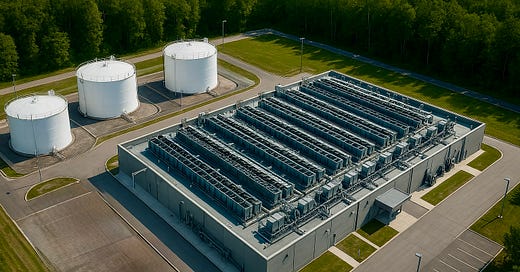Plan for Data Center Near Davis and Thomas Raises Alarms
Secretive Virginia company seeks permit for a huge off-the-grid power plant to run its facility
A secretive Virginia company wants to build an enormous self-contained power plant on about 300 acres of land between Davis and Thomas for what appears to be a data center.
The plans call for the power plant to run on natural gas, with 30 million gallons of diesel fuel stor…
Keep reading with a 7-day free trial
Subscribe to Country Roads News to keep reading this post and get 7 days of free access to the full post archives.




